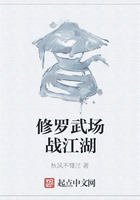Fourthly, the employment of a divine man or animal as a scapegoat is especially to be noted; indeed, we are here directly concerned with the custom of banishing evils only in so far as these evils are believed to be transferred to a god who is afterwards slain. It may be suspected that the custom of employing a divine man or animal as a public scapegoat is much more widely diffused than appears from the examples cited. For, as has already been pointed out, the custom of killing a god dates from so early a period of human history that in later ages, even when the custom continues to be practised, it is liable to be misinterpreted. The divine character of the animal or man is forgotten, and he comes to be regarded merely as an ordinary victim. This is especially likely to be the case when it is a divine man who is killed. For when a nation becomes civilised, if it does not drop human sacrifices altogether, it at least selects as victims only such wretches as would be put to death at any rate. Thus the killing of a god may sometimes come to be confounded with the execution of a criminal.
If we ask why a dying god should be chosen to take upon himself and carry away the sins and sorrows of the people, it may be suggested that in the practice of using the divinity as a scapegoat we have a combination of two customs which were at one time distinct and independent. On the one hand we have seen that it has been customary to kill the human or animal god in order to save his divine life from being weakened by the inroads of age. On the other hand we have seen that it has been customary to have a general expulsion of evils and sins once a year. Now, if it occurred to people to combine these two customs, the result would be the employment of the dying god as a scapegoat. He was killed, not originally to take away sin, but to save the divine life from the degeneracy of old age; but, since he had to be killed at any rate, people may have thought that they might as well seize the opportunity to lay upon him the burden of their sufferings and sins, in order that he might bear it away with him to the unknown world beyond the grave.
The use of the divinity as a scapegoat clears up the ambiguity which, as we saw, appears to hang about the European folk-custom of carrying out Death. Grounds have been shown for believing that in this ceremony the so-called Death was originally the spirit of vegetation, who was annually slain in spring, in order that he might come to life again with all the vigour of youth. But, as I pointed out, there are certain features in the ceremony which are not explicable on this hypothesis alone. Such are the marks of joy with which the effigy of Death is carried out to be buried or burnt, and the fear and abhorrence of it manifested by the bearers. But these features become at once intelligible if we suppose that the Death was not merely the dying god of vegetation, but also a public scapegoat, upon whom were laid all the evils that had afflicted the people during the past year. Joy on such an occasion is natural and appropriate; and if the dying god appears to be the object of that fear and abhorrence which are properly due not to himself, but to the sins and misfortunes with which he is laden, this arises merely from the difficulty of distinguishing, or at least of marking the distinction, between the bearer and the burden. When the burden is of a baleful character, the bearer of it will be feared and shunned just as much as if he were himself instinct with those dangerous properties of which, as it happens, he is only the vehicle.
Similarly we have seen that disease-laden and sin-laden boats are dreaded and shunned by East Indian peoples. Again, the view that in these popular customs the Death is a scapegoat as well as a representative of the divine spirit of vegetation derives some support from the circumstance that its expulsion is always celebrated in spring and chiefly by Slavonic peoples. For the Slavonic year began in spring; and thus, in one of its aspects, the ceremony of carrying out Death would be an example of the widespread custom of expelling the accumulated evils of the old year before entering on a new one.














